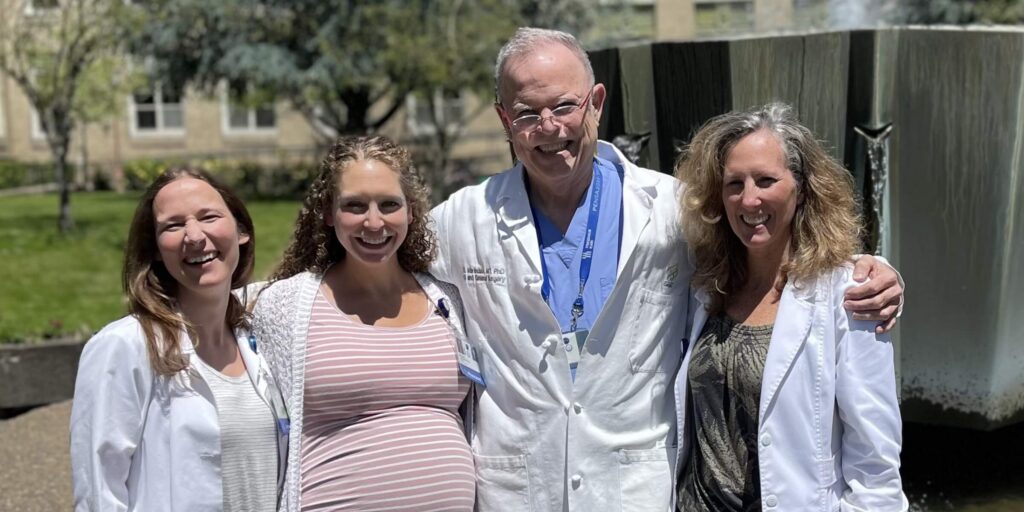

Spotlight: OHSU’s nutrition support team (NST)
A successful NST in action
Having an established NST that focuses on evaluating and managing clinical nutrition for critically and chronically ill patients has tremendous value in ensuring the patients’ general quality of care. More than 30% of patients in the intensive care unit are reported to be malnourished which impacts clinical outcomes and length of stay in the hospital.1 NSTs are an additional layer in the treatment continuum that helps to ensure patients receive appropriate nutritional support to help prevent and treat malnutrition.2 NSTs can be found in various settings, including hospitals, home healthcare, and long-term care facilities.3
“[An] NST has a central role in the management of patients with complex nutritional therapy in the inpatient and outpatient setting, during the hospital stay and beyond.”2
We wanted to see how an NST operates in conjunction with the greater medical care team, so we talked to the team at Oregon Health and Science University (OHSU).
How long has OHSU had a nutrition support team? Who is part of the team?
OHSU’s core NST was formed about 16 years ago with Dr. Robert Martindale at the helm. Beyond being a “nutrition champion,” he’s a general surgeon and medical director of hospital nutrition services. Other members of our team include a rotating surgical nutrition resident, registered dietitians, and pharmacists who all work together to provide patients with the best nutritional support possible.
How does your team work together with the full care team?
Our team meets virtually once a week for formal nutrition support rounds where other medical doctors, physician assistants, nurse practitioners, surgical and medical residents in training, medical students, dietetic interns, and ward-registered dietitians are invited to join the discussion. We also meet at the patient’s bedside for more complex cases where patient contact is required.
Dr. Martindale leads rounds by presenting a recent patient’s nutritional challenges and allowing the full care team to engage and ask questions. This is a unique opportunity for the greater care team to achieve insight into the nutritional needs of their patients as well as offer their own expertise.
What happens after rounds?
Once the presentation is over, the NST members break away to discuss their nutritionally complex patients, most of whom are on parenteral nutrition (PN). The team determines which patients are good candidates for PN and what adjustments may be needed regarding abnormal electrolytes, impaired blood glucose control, micronutrient deficiencies, altered fluid status in patients with a fistula or short bowel syndrome, and more. The team may also review abdominal computed tomography (CT) scans to evaluate muscle mass or identify sarcopenia. Having a physician on the team who has an interest and expertise in nutrition support certainly helps broaden the knowledge of the team, which leads to optimal treatment of their complex patients.
Here at OHSU we see how valuable the NST is in our hospital setting and how beneficial it would be for most hospitals with a multidisciplinary care model.
— Robert Martindale, MD, PhD; Brittany Cummiskey, PharmD, CNSC;
Lindsay Keeney, RD, CNSC, LD; Mary Weinberg, RD, CNSC, LD
-
Thank you, OHSU, for giving your time and sharing your knowledge. We appreciate the work your team does to support patients and their journey to living healthier lives.
3224-NP-08-09/22